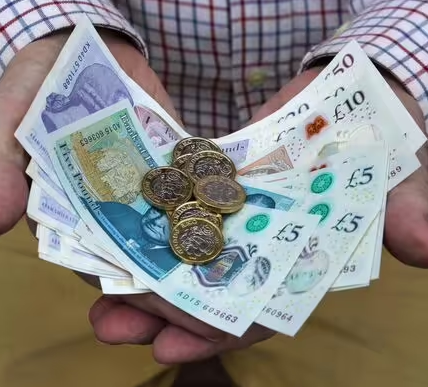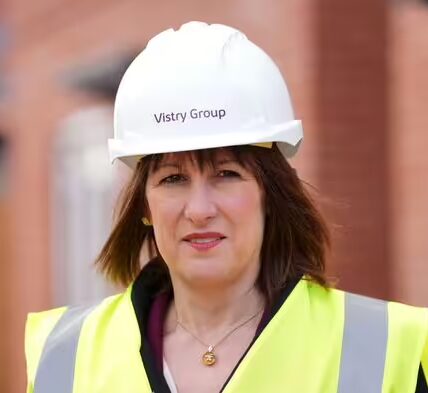The proposals could hit families, motorists and small businesses, with some warning that price rises are now “inevitable”.

Rachel Reeves will deliver her Budget on November 26 (Image: Getty)
Rachel Reeves is expected to announce a series of tax increases in Wednesday’s Budget, with several everyday costs set to rise. While attention has focused on income tax thresholds and ISA changes, other measures are likely to affect everything from supermarket drinks to taking a taxi home.
Industry leaders say the proposals could hit families, motorists and small businesses, with some warning that price rises are now “inevitable”. Below are the six areas expected to be targeted in the Budget.

Pre-packaged supermarket sugary drinks could be affected. (Image: Getty)
1. Sugary supermarket drinks
One of the biggest changes could affect pre-packaged sugary drinks found on supermarket shelves. Ready-to-drink milkshakes, canned coffees, frappés and similar products currently sit outside the Soft Drinks Industry Levy because they contain dairy.
That exemption is expected to end, The Telegraph reported. The levy currently applies to drinks with 5g or more of sugar per 100ml, with producers charged at least 18p per litre.
Under the plan being considered, the threshold could fall to 4g per 100ml, meaning more drinks will be caught by the rules.
Coffee shop drinks would not be affected, but anything pre-bottled in supermarkets would. Soft drinks makers say a higher levy could push up prices by around 5%, while only reducing average calorie intake “by the equivalent of half a grape per person per day”.
The change is expected to take effect in April 2027 and raise between £50m and £100m a year.

Holidaymakers taking UK city breaks could soon face extra charges too (Image: Getty)
2. A new tourist tax for hotel stays
Holidaymakers taking UK city breaks could soon face extra charges too. Reeves is preparing to allow mayors in England to introduce local tourism levies, similar to those already used in Scotland and Wales.
The tax would apply to overnight stays, including weekend breaks and longer trips. Local authorities could choose between a fixed nightly fee (around £1 per night has been discussed) or a percentage-based charge, similar to the 7% levy used in Aberdeen.
London Mayor Sadiq Khan has previously suggested a charge that could reach up to £15 a night, similar to New York’s system.

Taxi and private-hire fares could jump significantly (Image: Getty)
3. A nationwide taxi VAT rise
Taxi and private-hire fares could jump significantly if the Chancellor moves ahead with a proposal to impose 20% VAT on all private hire journeys across the country.
Currently, drivers outside London are treated as self-employed contractors and do not need to charge VAT. A nationwide rule would change that.
A typical five-mile journey in Manchester costs around £12.50. With VAT added, it would rise to £15.
Operators, including Uber and Bolt, warn it would hit “the most vulnerable”, especially those in rural areas and pensioners who rely on taxis for essential travel.
The Government says it is still considering the move, which could raise around £750m a year.

Reeves could introduce a road-pricing system (Image: Getty)
4. A pay-per-mile road charge
Electric vehicle owners are also expecting changes. As more drivers switch to EVs, and therefore avoid fuel duty, Reeves could introduce a road-pricing system, charging motorists for every mile they drive.
The plan would apply even when driving abroad, The Telegraph reports. From 2028, drivers could pay an additional 3p per mile. A 1,000-mile holiday road trip in Europe would therefore cost around £30 extra, on top of local motorway tolls.
The Treasury argues that as EV drivers pay no fuel duty, a mileage tariff ensures they “contribute fairly” to road funding.

Gambling companies are preparing for changes to betting duties (Image: Getty)
5. Higher gambling and gaming taxes
Gambling companies are preparing for major changes to betting duties. The Treasury currently takes different rates depending on the type of gambling:
- 15% on sports betting
- 21% on online games of chance
- Up to 25% on most physical slot machines
The Budget is expected either to harmonise these rates or increase them. Even former prime minister Gordon Brown has supported calls to double the rate on high-street slot machines from 25% to 50%.
However, the industry warns that the impact could be severe. Betfred has warned that all 1,200 of its shops could be at risk, while Rank Group chief executive John O’Reilly said higher machine duty “will lead to the closure of much-loved bingo clubs”.

Cycle to Work salary-sacrifice scheme is expected to be tightened (Image: Getty)
6. Limits to Cycle to Work tax perks
The popular Cycle to Work salary-sacrifice scheme is also expected to be tightened. Workers currently face no upper limit on the value of bikes or accessories they can buy through the tax-break system.
However, HMRC research found that more than 60% of participants already owned a bike and over one-third bought models costing more than £1,000.
A Government source told the Financial Times that “taxpayers shouldn’t be footing the bill for luxury leisure”. Reeves is expected to lower the amount that can be claimed, rather than scrap the scheme entirely.

